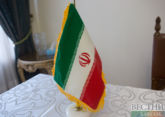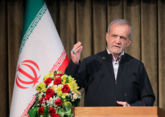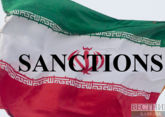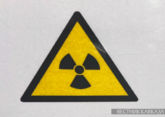This past summer, the Industrial Development and Renovation Organization of Iran (IDRO) concluded landmark agreements with French automaker Renault and transportation giant Alstom as well as Russian logistics company Transmashholding. Under each of these new deals, a foreign multinational corporation has agreed to establish a new joint-venture company in Iran in which it will be the majority shareholder.
Al-monitor reports in its article New industrial policy poised to transform Iran’s political economy that in the cases of Renault and Alstom, each will control 60% of their respective joint ventures. Russia’s Transmashholding will own 80% of its new partnership; its higher shareholding perhaps explained by the fact that it is itself a state-owned enterprise.
In all of these deals, IDRO — which was established under the Shah in 1967 — will act as a relatively passive shareholder. This is because it is not an industrial company, but rather a holding company formed under the auspices of the Ministry of Industry, Mine and Trade. This means that for the first time in post-revolutionary Iran, major industrial contracts are being concluded in which the foreign party not only enjoys control of its local entity but also avoids necessarily needing to partner with an Iranian firm from an operational standpoint. This shift, in which state ownership in Iran is transitioning from an emphasis on industrial operation to financial shareholding, is highly significant. It represents a dramatic innovation in the Iranian political economy and may act as one of the single most significant catalysts for Iran’s ability to attract foreign direct investment in a world of globalized capital.

While Iran has long allowed foreign companies or investors to own up to 100% of an Iranian entity, in practice the provision did not extend to “national industries” outlined in Article 44 of the Islamic Republic Constitution, which include the energy sector, the automotive industry, mining and aviation, among others. Yet President Hassan Rouhani’s administration has used its strong mandate for economic reform to interpret Article 44 more liberally.
Prior to the lifting of nuclear-related sanctions under the Joint Comprehensive Plan of Action, multinational companies seeking to manufacture in Iran were effectively required to work with a local operating partner. The historical partnership between Peugeot and Iran Khodro as well as that between Siemens and MAPNA attest to this requirement of joint operation. In these arrangements, the foreign company brought Iran technology and financing, and the local partner brought political support, facilities and labor. Iran’s market is large enough such that foreign companies could be enticed to invest on these terms. As such, foreign direct investment accelerated beginning in the mid-1990s. But this model necessarily led foreign companies to treat Iran as a secondary market.

Indeed, because they did not enjoy outright control over their investments in Iran, foreign multinationals did not invest proactively. The automobiles, rolling stock, industrial machinery and other output from these manufacturing partnerships were typically one or two generations old. Subsequently, Iran struggled to export its manufactured output, being limited to only regional markets where buyers would accept the obsolete, if functional, vehicles and equipment. As it charted a new path for Iran’s economy, the Rouhani administration sought to breach the limits of this approach. To encourage multinationals to treat Iran as a primary market, it was necessary to allow foreign control of the local entity and remove the requirement of an operating partnership with an Iranian industrial enterprise, whose contribution would always prove difficult to bring to a global standard. At the same time, given political constraints, totally eliminating the state’s role remained impossible.
The new deals struck by IDRO show a new middle way. IDRO’s own company website outlines a progressive mission for state-owned enterprise — make “great efforts to privatize … affiliated companies” in part by “promotion of local and foreign investment … with minority holdings owned by IDRO [less than 50% of the shares].” Additionally, unlike the partnerships created with the new Iran Petroleum Contract, a partnership with IDRO does not require a multinational company to have an operational partner. Through these processes, IDRO in its own words intends to “lessen its role as a holding company” and “turn into an industrial development agency.” With the conclusion of the Renault, Alstom and Transmashholding contracts, these pledges are no longer just wishful thinking. Instead, they represent a clear path for Iran’s industrial policy.
Moreover, IDRO’s stated focus on supporting development with a “particular emphasis on new, hi-tech and export-oriented industries” is also reflected in the recent contracts. In the case of Renault, the unprecedented deal includes stipulations that the company establish a research and development center in Iran and earmark 30% of output for export. In short, Renault will treat Iran as part of its global supply chain, defining a model of Iranian industrialization that treats globalization as a driver of revitalization rather than as a cause for resistance.
Despite these significant developments and the strong evidence for the transformation underway, critics of economic engagement with Iran use a dated and inaccurate vision of Iranian state enterprise in order to advocate against trade and investment. They also fail to contextualize state ownership in Iran within the larger global history of the country’s political economy. The move from active operation to passive shareholding as the defining feature of state ownership is one that has been witnessed in each region in which globalization has taken hold. The vestiges of this transition remain; passive state ownership of major industrial companies remains very common globally, and perhaps especially in Europe. Tellingly, the French state owns 19.74% of Renault.
If anything, IDRO’s recent successes are the harbinger of a potential transformation in Iran’s political economy that needs to be recognized and nurtured. Both the country’s leadership and its labor force deserve the opportunity to enact economic liberalization in measured steps and count upon foreign engagement and investment as key drivers of reform.










